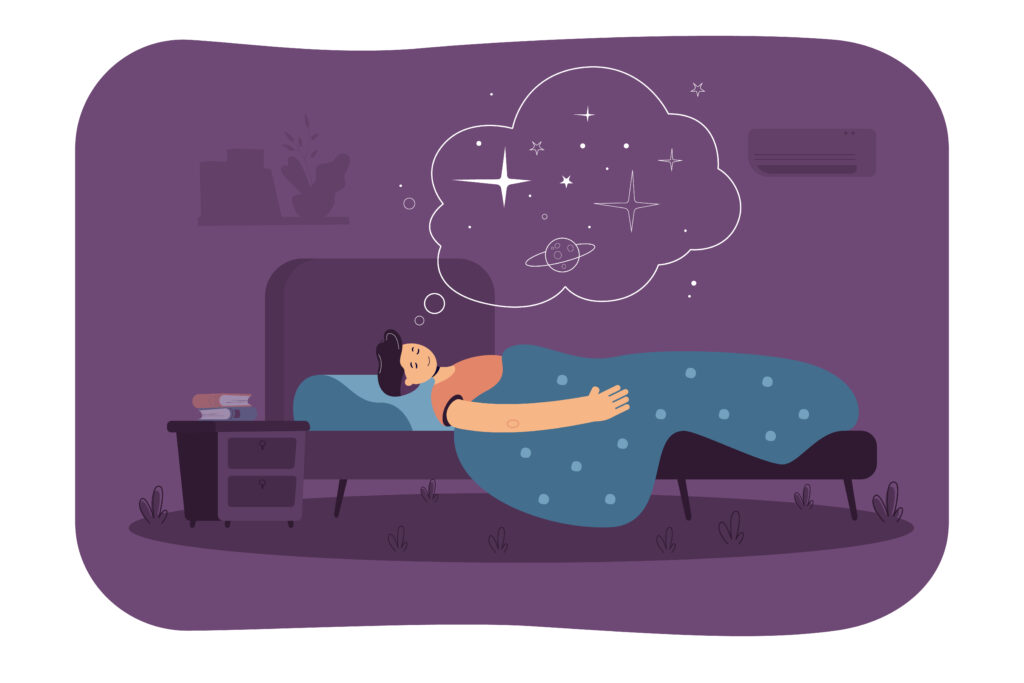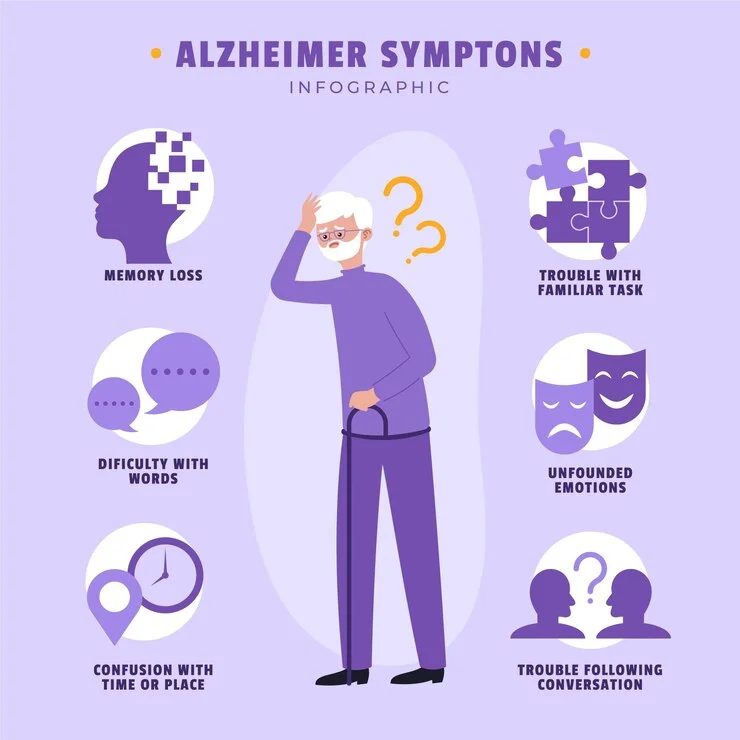Why My Mind Goes Blank and I Keep Forgetting Things
Have you ever walked into a room and forgotten what you went there for? Or found yourself constantly misplacing your phone, keys or wallet? Can’t remember names or words that you know you know?
For most of my adult life, I’ve struggled with feeling forgetful. And after going through periods of extreme stress in my late 30s, my memory issues seemed to become much worse. I began forgetting recent chats with my wife, losing my train of thought mid-conversation, and misplacing things daily. I found myself thinking, “Why do I keep forgetting things all of a sudden?”
So I dug into the latest research on memory, cognitive decline and what really causes healthy adults to be so forgetful. I discovered quite a few surprising reasons why our minds can go blank, especially as we age. The good news? Many lifestyle changes and stress-reduction tactics can help improve recall.
When Normal Forgetfulness Becomes Problematic
- Forgetting where you left your phone or missing an appointment now and then is no big deal. But when forgetfulness starts impacting your work, relationships and daily effectiveness, it likely indicates underlying issues.
- In my late 30s, my tendency to misplace things, scramble names and completely space out during chats was happening almost daily. Not being able to keep up with conversations made me avoid social events.
- Wondering “why can’t I remember this” in situations where you clearly should be able is extremely frustrating! And when this mental fog lasts for weeks on end, anxiety and depression often creep in too.
I share more examples from my tip-of-the-tongue struggles later on. But first, let’s analyze what really causes our minds to go blank as we age.
Key Reasons Adults Start to Get Very Forgetful
There are many explanations for why perfectly healthy adults start becoming absent-minded as years go by. After loads of medical tests to rule out early dementia or tumor risks, I discovered my severe forgetfulness stemmed from a mixture of:
1. Cumulative Stress Overload
- When we face extremely stressful or traumatic events, it kicks our nervous system into overdrive. Adrenaline and cortisol flood the body to alter brain function.
- Our minds go into fight-or-flight mode where memory formation gets disrupted. Evolutionarily this served a purpose, but chronic stress has lasting effects.
- Going through a drawn-out job loss in my late 30s, combined with family member health crises overloaded my coping capacities.
Personal example: After being laid off suddenly despite 10 years at a company, I sank into depression. Soon after, a close family member was diagnosed with early-onset Alzheimer’s. The unrelenting stress changed my brain function severely.
2. Poor Sleep Patterns

- Sleep is absolutely vital for memory consolidation. When we REM sleep, our brains organize and store memories from that day.
- My erratic sleep due to anxiety and distress meant I often wasn’t getting quality deep sleep. Without REM sleep, our memories never properly file away. New info flows in, but quickly fades.
- Exhaustion also greatly diminishes attention, concentration and recall abilities when awake. My mental fatigue was off the charts.
Personal example: I developed major insomnia after losing my job. Tossing and turning nightly, I’d only sleep a couple hours at a time. That vicious cycle absolutely decimated my memory over months.
3. Medication Side Effects
- One medication I started taking for high blood pressure had memory loss as a potential side effect. It’s fairly common yet rarely discussed.
- Multiple prescriptions can increase risks of cognitive impacts too. As we age, we end up taking more medicines that dampen recall.
- I discovered later that the drug I was on carried higher chances of memory fog and confusion.
The reasons behind your mind going blank likely involves a combination of age-related changes, genetics, lifestyle factors, environmental conditions and more. It takes some trial-and-error to pinpoint what applies most to your situation.
Tactics I Used to Finally Improve My Memory
After learning that significant stressors and sleep disruption catalyzed my memory issues, I developed tactics to directly target those areas first:
1. Weekly Mindfulness and Meditation
- Building mindfulness through short daily meditation sessions helped substantially lower my overall anxiety.
- This mental calm carried over as I moved through each week. Over time, my stress levels gradually decreased which boosted memory.
Tip: Use apps like Calm, Headspace or Insight Timer to access guided meditations if interested.
2. Aerobic Activity and Exercise
- Bursts of aerobic activity trigger the release of chemicals like dopamine and serotonin that rev up the brain.
- I wasn’t exercising much out of depression. But pushing myself to take brisk 60 minute walks helped blood circulation in a big way.
- Over time, establishing this as an ongoing habit gave my memory retention a notable lift.
3. Mnemonic Devices and Memory Palace
- For key things I kept forgetting, I relied on some classic memorization tactics like mnemonic devices. They seem simplistic but using word and sound associations does help.
- I’d also construct mini memory palaces when needed. Say I kept losing my keys on the kitchen counter. Visualizing exaggeratingly large keys sitting next to the toaster as I walked helped cement that spot in my mind better.
Unexpected Tool: Listening to particular music I enjoyed during those stressful life events also seemed to help unlock memories associated with those songs too. The rush of nostalgia and emotions activated the right neurochannels.
Early Onset Alzheimer’s in a Family Member
In the midst of my memory struggles, we discovered my mother had genetic markers indicating the early stages of Alzheimer’s disease. Given my cognitive issues, I promptly scheduled in-depth memory screenings which helped identify stress as the culprit rather than dementia in my case.
Still, seeing a loved one, especially a parent, struggling with recall ability impacts the entire family on emotional and practical levels. I encourage anyone in that position to:
- Attend doctor visits to understand disease progression and expectancies
- Learn emerging treatment options to slow symptom advancements
- Seek counseling to deal with complex feelings that manifest
- Build a care team to share duties as needed over time
- Be extremely patient and celebrate little daily wins
My mother’s Alzheimer’s battle was another reminder that preserving memories with loved ones remains a gift. After her diagnosis, our family made a pointed effort to embed more shared moments. We’d have dinner together looking through old albums recalling childhood stories. Or take more photos capturing inferior occasions that we’d otherwise forget.
Key Takeaways – Why We Keep Forgetting Things
Hopefully this deep dive into forgetfulness and memory provides some reassurance and ideas if you also wonder “Why do I keep forgetting things?” so constantly.
Here are the key points I want to drive home:
✔️ Forgetfulness peaks due to identifiable lifestyle factors rather than signaling dementia
✔️ Lowering unrelenting stress is pivotal to improve memory and cognitive abilities
✔️ Poor sleep destroys consolidation which massively hinders recall
✔️ Memory can rebound thanks to the brain’s neuroplasticity at any age
Don’t hesitate to check with your physician to analyze any theories about why your particular memory issues have emerged recently. Being your own memory detective helps.
The brain is incredibly malleable. So implementing little lifestyle shifts can truly make a world of difference. Our minds expanding capacity when given the right tools never ceases to amaze me.

